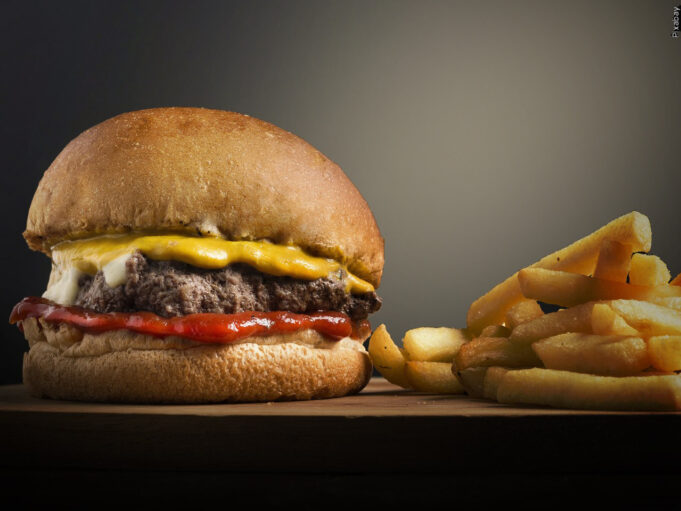Kids may unknowingly be consuming an animal contraceptive when they eat a chicken sandwich at Chick-fil-A. In a new report, Moms Across America found veterinary drugs and hormones in foods sold by the 10 most popular fast food restaurants in the U.S.
by Suzanne Burdick, Ph.D., The Defender
This article was originally published by the Defender—Children’s Health Defense News & Views Website as part of a series covering Moms Across America’s testing results for the top U.S. fast food restaurants.
Kids may unknowingly be consuming an animal contraceptive when they eat a chicken sandwich at Chick-fil-A, according to a Moms Across America’s (MAA) report on hormones found in food served in the most popular U.S. fast food restaurants.
The nonprofit MAA this month released results from food samples tested for veterinary drugs, including antibiotics and hormones. Health Research Institute, a Fairfield, Iowa, nonprofit independent lab, conducted the testing.
The results showed that a Chick-fil-A chicken sandwich contained nicarbazin, an antiparasitic that also functions as a bird contraceptive.
Sixty percent of samples from the U.S.’ top 10 fast food chains also contained the antibiotic monensin, which can cause severe harm in humans and remains unapproved for human use by the U.S. Food and Drug Administration (FDA).
Zen Honeycutt, MAA’s founder and executive director, called the results “shocking” and “disturbing,” especially because some fast food chains supply school lunches.
Honeycutt and other healthy food advocates on Oct. 17 will present the test results to U.S. lawmakers during a congressional briefing on U.S. food toxicity.
“Thirty million school meals are served to our children each day,” Honeycutt told The Defender, “and for millions of underprivileged children, these toxic meals are their only access to nutrition.” She added:
“The impact of millions of Americans, especially children and young adults, consuming a known animal contraceptive daily is concerning.
“With infertility problems on the rise, the reproductive health of this generation is front and center for us, in light of these results.”
Commenting on MAA’s fast food testing initiative, attorney Michael Baum, a senior partner at Wisner Baum said:
“Toxins like the ones Moms Across America’s testing found in major fast foods don’t belong in anybody’s food, especially children’s food.
“Repeated exposure to them can build up and cause unexpected harms—kudos to Moms Across America for getting this testing done and published.”
Under Baum’s leadership, the law firm has won billions of dollars in consumer fraud and product liability cases against major pharmaceutical and life sciences companies, including Bayer Corp. (formerly Monsanto), Eli Lilly, Forest Labs, GlaxoSmithKline, Pfizer and more.
Baum added, “These fast food companies should now take steps to eliminate the toxins from what they offer kids and adults to eat.”
Infectious disease specialist: antibiotics in fast food samples ‘concerning’
Health Research Institute tested samples from Taco Bell, Chipotle, Dunkin’, Wendy’s, Domino’s, Burger King, Subway, Starbucks, Chick-fil-A and McDonald’s.
Only products from Chipotle and Subway had no detectable levels of veterinary drugs and hormones.
Testing found monensin, an antibiotic used to increase milk production in dairy cows, in: McDonald’s Big Mac, Burger King’s Quarter Pounder, Domino’s extra pepperoni pizza, Wendy’s Cheeseburger, Dunkin’s sausage, egg and cheese Breakfast Sandwich and Taco Bell’s Beef Taco Supreme.
The Dunkin’ sandwich, the Domino’s pizza and Starbucks’ Double-Smoked Bacon, Cheddar & Egg Sandwich had traces of narasin, an antibiotic used in livestock and poultry. Wendy’s Cheeseburger also contained a substantial amount of narasin.
Monensin and narasin are antibiotic ionophores that work by increasing the ion permeability of cell membranes. They are primarily used to prevent coccidiosis, an intestinal parasitic infection.
Dr. Dimitri Drekonja, an infectious diseases specialist and associate professor of medicine at the University of Minnesota, found it “concerning” that multiple fast food products contained ionophores. He told The Defender:
“People should worry about any unnecessary antibiotic use, whether in humans or animals, in that all use selects for more resistant organisms, some of which ultimately end up causing human infections.”
“While I would prefer it be zero,” Drekonja said he was “encouraged” to see that only three of the 104 drugs tested for were present in the samples.
Nicarbazin—the drug found in Chick-fil-A’s chicken sandwich—is also used for treating coccidiosis in meat birds, and for preventing reproduction in geese and pigeons.
A 2005 report on food safety control in the poultry industry noted the drug had “been on the market for decades” but recently was “prohibited due to incomplete toxicological data.”
However, as of June 7, the FDA allows nicarbazin for use in poultry to prevent coccidiosis and “for increased rate of weight gain and improved feed efficiency.”
Chick-fil-A did not immediately respond to The Defender’s request for comment on its use of nicarbazin in its chickens.
The views and opinions expressed in this article are those of the authors and do not necessarily reflect the views of Children’s Health Defense.













